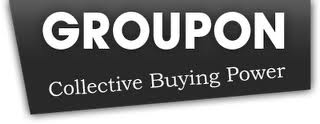Groupon's Big Problem
Posted on Wednesday, September 15, 2010 at 3:36 PM

For the uninformed, Groupon is a service that provides deep discounts, sometimes more than 50%, to retailers and restaurants. From their website:
What is Groupon?
Each day, Groupon features an unbeatable deal on the best stuff to do, see, eat, and buy in your city. By promising businesses a minimum number of customers, we get discounts you won't find anywhere else. We call it "collective buying power!"
For people looking to save some money when they go out, Groupon (and the crop of copycats that have popped up recently) can be seen as a boon. Who doesn't love saving money? Besides saving a lot of money, the daily deals provide an opportunity to check out some great new places that you might otherwise be hesitant to visit. But Groupon has a problem that's beginning to show its ugly head.
Some of the merchants that signup to offer a deal don't set a limit (or at least a reasonable one) on the number of Groupons that can be sold. Literally thousands of people will cash in on some of these deals. Again, who doesn't like saving money? Many of the merchants that sign up are small places that are using Groupon as a way to advertise their business to a broader audience. It's now a proven fact that if your business is lucky enough to be selected as one of the daily deals you will see a huge increase in traffic and transactions. While it's no guarantee, merchants hope this one-time surge will translate into repeat customers for a long time to come and they hope these customers will tell their friends who will then tell their friends and so-on and so-forth.
But, what happens when so many deals are sold that the business has no way to comfortably accommodate the influx of new business? We have first-hand experience with this problem. For businesses, the Groupon instantly creates months long wait time. It's likely that you won't be able to use the great deal you just bought for at least 2-3 months (sometimes more) due to the sudden increase in demand for limited availability. A little frustrated you decide to wait for the initial demand to die down and then you forget about your Groupon. That is, until the week before it expires. Then you scramble to use it before you lose it. So is everyone else but you didn't anticipate it would be THAT bad. But it's bad. Real bad.
Restaurants that before signing up with Groupon never had long wait times for a seat now see 1.5 to 2 hour wait times. At any other time most people would just say "Never mind. We'll try again at a later date." But when this is your last chance to take advantage of your great deal it leaves you little choice but to stick it out. So you try to find a seat at the bar with 50 other people and you wait. And wait. And wait until your name finally gets called. As the hostess takes you to your seat you see just how crowded the place is and just how busy the staff is working. They are literally running all over the place trying to create a great experience for their customers. As if waiting 2 hours for a seat wasn't enough of an issue you quickly learn it's just the beginning.
Undoubtedly, a number of items on the menu will be gone. The restaurant will have simply run out of it. It's usually their signature dishes. Hopefully it's not something you were hoping to try. You'll also have to wait longer for service since your waiter is busy with his other customers. Your food could take longer to come out. Chances are there will be something wrong with it. You can try to say something about it but chances are you're hungry and frustrated enough that you'll say, "Whatever, it's fine."
And herein lies Groupon's biggest problem: their popularity is hurting businesses. "Isn't the great deal supposed to help? Isn't that the point?" That is the point but it's being lost in the customer experience. You don't have to believe me, but the Yelp reviews don't lie. Places that before signing up with Groupon had good reviews are starting to get 3-star reviews that say things like "The food wasn't that great but we had a Groupon so we didn't expect much". Or, "it was ok but I don't think I'd come back here again". Just because a business offers a deal doesn't mean it should throw out the good service or well prepared food to cram it in for the masses. It's going to come back to haunt them on these review websites.
It's not just the customers who get a bad deal but so do the staff that work at these merchants. We've heard from a number of people that say when they see someone with a Groupon come in they prepare themselves for the inevitable bad tip. Most customers that use a Groupon it seems aren't tipping on the full price. They're tipping only on the discount, which as we already mentioned can be a 50% difference. The staff is also going to have some crazy busy nights and more upset customers than usual. The other night we were at a restaurant attempting to use a Groupon that was set to expire in 1 more day and we asked the hostess amidst the craziness if she thought signing up with Groupon was a good idea. We're inclined to believe that her response is pretty typical. She said, "If you ask the owner I'm sure he'd say yes. But if you're asking me I'd never do it again." In other words, the staff at these merchants hates Groupon.
For more information, take a look at this Chicago Tribune article from August of this year: Growing with Groupon may be tricky for businesses - Surge of customers can hurt bottom line or alienate regulars
Greg Gibbs, owner of Chicago Bagel Authority in Lincoln Park, felt this pain firsthand when he signed on with Groupon for a deal-of-the-day in January. His promotion, which cost $3 for an $8 voucher good for any menu item, sold nearly 10,000 Groupons, 10 times more than the top end of Gibbs' expectations.
"This will end up being the year of the Groupon for us, and that's not a good thing," Gibbs said. "We'll count it as a loss."
After splitting 50 percent of the revenue with Groupon, a standard deal for most businesses, the shop netted about $15,000 for $80,000 worth of food. Gibbs said the promotion hasn't yet translated into additional revenue.
"We just don't get the kind of customer that we want to come back," said Gibbs, who saw patrons put items back if their total exceeded $8. "It's a lot of people that come once for the discount, nobody tips, and they're all trying to squeeze it into the exact dollar amount."
Note: emphasis ours
« Previous PostNew Feature: Convert Any Page Into a Blog Post Next Post »There's No Place Like Home
